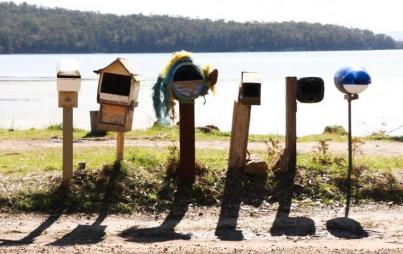
HeadSpaces is a brand new column featuring the brilliant minds of psychologists Dr. Rachel Kozlowski and Dr. Naomi Ben-Ami discussing modern romance.
This is my HeadSpace: My boyfriend and I were together for a year when he was offered a unique opportunity to work in London for two years. I’ve already put a year and a half into this relationship, and while I do really love him, I worry that distance will dilute our connection and make us grow apart, and I’m at a point where I am ready to settle down. Are long distance relationships hopeless? Help! —Lovelorn and Worried
Dear LAW,
I feel you girl. Long distance relationships can be a nightmare (Skyping is awkward, the phone is even more awkward, you miss sex! you hate sleeping alone! you feel disconnected, at odds and generally miserable! etc. ad nauseam). But, the doctors say distance doesn’t need to be a death sentence for your relationship.
In fact, many couples find that physical separation actually deepens their bond in the wake of all that wish-you-were-here. Seriously. Those who successfully navigate the stinging slings and arrows of long distance relationships often forge increased trust, intimacy and enhanced communication. And while snapchats, sexting, facetime and good ol' fashioned email might leave a computer-y taste in your mouth, the sheer amount of options for staying connected is unprecedented and exciting. Long distance couples are actually becoming more common than ever, perhaps due in part to this brave new world of technology-fueled intimacy.
Researchers at Queen’s University and the University of Utah found that couples in long distance relationships are as satisfied as their geographically close counterparts—it turns out that the elusive notion of satisfaction (which Jagger has been warbling about since 1965) is all wrapped in faith. Not in the big G-o-d, but in your own feelings of potential longevity. According to Dr. Kozlowski and Dr. Ben-Ami:
"The beliefs one holds about the trajectory of their relationship seems to play a significant role in how they feel about the relationship, suggesting that if you are more certain about the future of your relationship, you’ll likely be more satisfied with the relationship (and vice versa), no matter the miles between you," the doctors explain.
From your letter, it was tricky to tell whether you are "ready to settle down" with said London-bound boyfriend or you are "ready to settle" conceptually and emotionally with the right person should they present themselves. Maybe you're not sure either, but Dr. K and Dr. B caution you not to frame that decision in terms of perceived investment. This is, after all, not a stock or even an expensive dinner; it doesn't have to be sold before the market shifts and it doesn't have to be gobbled up because you ordered it. Dr. K and Dr. B put it this way:
"While readiness to settle down is certainly an important factor for you to consider, deciding the fate of the relationship solely based on time invested is problematic. In fact, delaying one’s desire for immediate gratification can actually be helpful in ultimately securing a satisfying, successful marriage. Some research has suggested that length of courtship is related to couples’ happiness over time. One possible explanation is that the better you know yourself and the other person, the better able you are to make decisions about your compatibility. Taking your time also helps reduce the likelihood that you will confuse lust for deep love.
Issues surrounding commitment, trust, and communication may emerge and/or be exacerbated in a long distance relationship, and being with someone who is far away can be frustrating and demanding. Long distance couples may overlook problems in compatibility that typically emerge when spending time together, jealousy can be threatening, partners can feel lonely, and the lack of physical affection can be depleting."
But in light of everything we just mentioned, lots of couples make it work, and having a finite amount of time apart makes everything all the more manageable. If you do decide to go the long-haul and try to traverse the ocean together, here are a few things the doctors suggest you keep in mind.
1. Don't doom and gloom all over the damn place. While it’s important to allow yourself to feel what you’re feeling and express it to your partner—I'm freaking out!—optimism is contagious. Try your very bestest to remain supportive and encouraging; affirm your commitment to the relationship. Try to focus on the benefits of distance—after all, it isn't forever—such as having more time to work on yourselves individually, going on adventures together while visiting (rather than binge-watching Battlestar Galactica), and honing the excitement—both sexually and emotionally—of seeing each other in person.
2. Say what you mean and do it often and openly. While this is a critical aspect of any healthy relationship—holding back ain't right—communicating honestly on a regular basis is of paramount importance for long distance couples. Without it, things will devolve. And fast. Establish frequent and regular contact, and be creative with how and when you talk to each other. (In the bathtub! Ahh, our song just came on the radio! Look at this three-legged pug!) The little things are what comprise much of life.
3. Try a little tenderness. Send each other gifts and photos. Whisper sweet nothings in letters and emails and videos. Try to surprise each other; it may sound trite, but it does indeed help keep the spark alive.
And finally? Hope is all well and good, but not if it's obscuring honesty. If the long distance "thing" isn't working, acknowledge the problems you're having with your partner and talk about whether or not it makes sense to keep trying.







